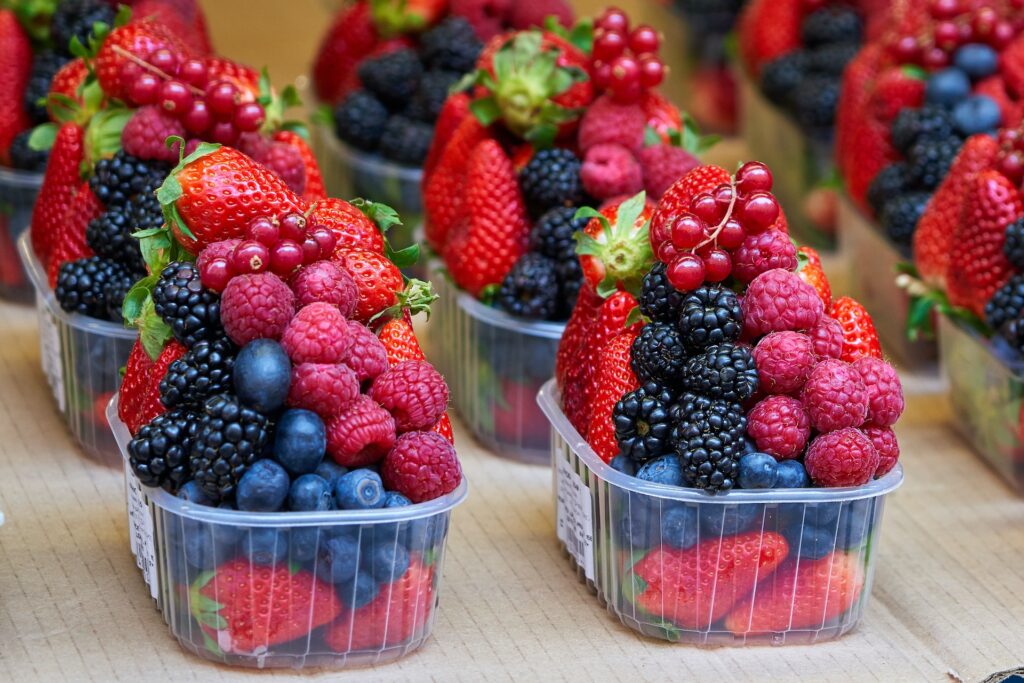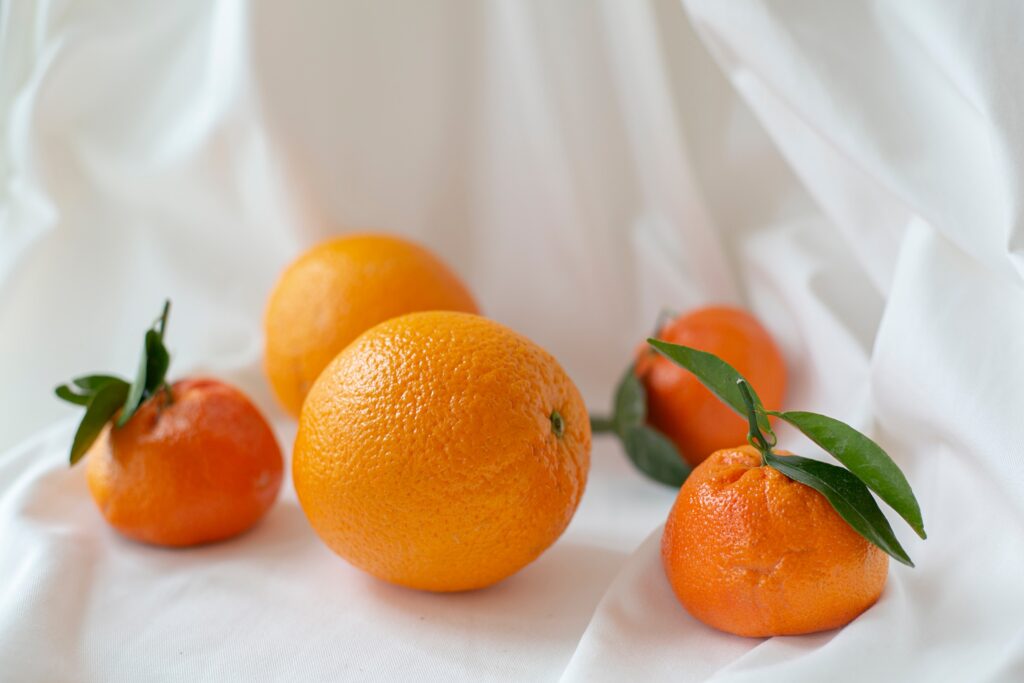Superfoods are some of the healthiest foods to consume on a daily basis, despite all the hoopla surrounding them. While there is no real, quantifiable definition for superfoods.
Some super-healthy foods, such as goji berries and sardines, are either too expensive or difficult to acquire to be incorporated into our daily diets. Variety is essential for a healthy diet, but we wanted to discover superfoods that are simple to incorporate into your diet. Ultimately, it does not matter how healthy a product is if it is not consumed.
The healthiest foods and diets on the market emphasize the consumption of genuine, whole foods: an abundance of vegetables and fruits, whole grains, healthy proteins, and fats, and minimal added sugar and sodium. While there are many other healthy foods that did not make this list, such as lentils, bananas, and beets, this is a wonderful place to start if you’re looking to incorporate more nutritious foods into your diet.
1. Berries

All berries are excellent sources of fiber, an essential nutrient that most Americans lack. Fiber helps maintain a healthy digestive system and optimal function, keeps you feeling full, and is good for your heart. All berries are healthy, so be sure to consume a variety. In the winter, when berries are out of season, you can use frozen berries (without added sugar) in smoothies, oatmeal, or even thawed yogurt. Raspberries are one of the finest breakfast foods for weight loss, as they contain 8 grams of fiber per cup and ellagic acid, an anti-cancer compound. The same quantity of blueberries contains only four grams of fiber but is loaded with anthocyanins, which may help maintain memory as we age. A cup of strawberries contains 3 grams of fiber and more than the recommended daily allowance of vitamin C for skin-firming.
2. Eggs
Eggs, a vegetarian source of high-quality protein, may offer your meal more staying power. Each egg contains approximately 70 calories and 6 grams of protein. In addition, egg yolks contain lutein and zeaxanthin, two antioxidants that promote healthy eyes. In fact, research published in 2019 in PLOS One links lutein and zeaxanthin to a decreased risk of age-related macular degeneration, the leading cause of blindness in individuals aged 65 and older.
3. Sweet Potatoes
The orange hue of sweet potatoes is due to the presence of alpha and beta carotene. The body converts these compounds into vitamin A, which helps maintain healthy eyes, bones, and an immune system. These phytochemicals also function as antioxidants, eliminating free radicals that promote disease. One medium sweet potato (approximately a half-cup) contains nearly four times the daily value for vitamin A, in addition to vitamin C, B6, potassium, manganese, lutein, and zeaxanthin.
4. Broccoli

This green superfood is packed with vitamins A, C, and K (which aid in bone health), in addition to folate. It contains sulforaphane, an isothiocyanate believed to prevent cancer by stimulating the body’s detoxification enzymes.
5. Oats
Oatmeal is a dietary staple and a significant superfood. Eating more oats is a simple method to increase your fiber intake and a filling breakfast option. In addition, oats are whole grain and contain no added sugar. Start with plain oats and transform them into blueberry oat cakes, homemade granola to savor with fruit and yogurt, or peanut butter energy bites for a superfood meal or snack.
6. Spinach
Dark verdant greens do a body good. Spinach is loaded with essential nutrients, including vitamins A, C, and K, along with fiber, iron, calcium, potassium, magnesium, and vitamin E. Studies have shown that consuming more leafy greens, such as spinach, can help you lose weight, reduce your risk of developing diabetes, keep your brain youthful, and aid in the fight against cancer.
7. Tea

Studies indicate that regular tea consumption may reduce the risk of Alzheimer’s, diabetes, and certain malignancies, as well as promote healthier teeth, gums, and bones. Tea is abundant in flavonoids, an antioxidant genus. No matter which variety of tea you choose, consuming it freshly brewed will maximize the flavonoid content. If you want to store a quantity of cold tea in the refrigerator, add some lemon juice. The citric acid and vitamin C in the lemon, lime, or orange juice will help preserve the flavonoids.
8. Nuts
What can almonds not do? They are loaded with heart-healthy polyunsaturated lipids and magnesium, two essential nutrients. These nutrients may also prevent insulin resistance, which can contribute to diabetes. Antioxidant compounds present in nuts, such as ellagic acid and resveratrol, can reduce free radical damage to the body. This reduces inflammation, which may reduce the risk of malignancy. In addition, nuts contain insoluble fiber, which, according to studies, may promote health by feeding beneficial gut flora. Spread nut butter on toast, snack on a handful of nuts, or create your own easy trail mix.
9. Oranges

Oranges are a product that is underrated. Oranges are an excellent source of vitamin C; one large orange (or a cup of orange juice) provides a complete day’s supply. Vitamin C is essential for the production of infection-fighting white blood cells and antibodies; it is also a potent antioxidant that protects cells from free-radical damage and is essential for the production of skin-firming collagen. Additionally, oranges are rich in fiber and folate.
10. Yogurt
Yogurt contains probiotics or “good bacteria” that maintain the health of our digestive tracts. It is also calcium-rich. One cup of yogurt contains nearly half of the daily value for calcium, in addition to phosphorus, potassium, zinc, riboflavin, vitamin B12, and protein. Choose Greek-style yogurt for an even greater protein boost, and opt for bland whenever possible. Typically, flavored yogurts contain a great deal of added sugar, which adds calories but no nutrients.
Conclusion
Superfoods may not have a quantifiable definition, but they are healthful enough for daily consumption. Not only are superfoods delectable, but they are also loaded with health-promoting nutrients and antioxidants. So top your oatmeal with berries, add sweet potatoes to a grain bowl, and munch on some nuts every day to obtain the benefits of superfoods.
FAQ
What is an interesting fact about eating healthy food?
Many studies support the truth that an unhealthy diet is constantly linked with mental health issues; namely depression and anxiety. Choosing foods like bananas, fish, oats, nuts, and seeds will help to boost your mood and assist you in gaining mental clarity.
What is the number 1 superfood?
Green leafy vegetables: Green leafy vegetables such as spinach, kale, and beet greens are high in vitamins, magnesium, and potassium. They help maintain a healthy digestive tract.
Why is healthy food tasty?
Healthy food can also taste good. You can satiate your palate with healthy food if you use the right ingredients and cook it smartly. There are numerous ways to add that zing to your meal. The two most easy and important ones are: start with the best possible ingredients.
| Homepage | Click Here |
| Foods Deserving the Name “Superfood” | Click Here |

